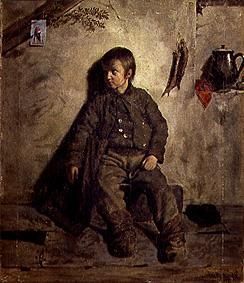Negligence is a failure to exercise appropriate and/or ethical ruled care expected to be exercised amongst specified circumstances. The area of tort law known as negligence involves harm caused by failing to act as a form of carelessness possibly with extenuating circumstances. The core concept of negligence is that people should exercise reasonable care in their actions, by taking account of the potential harm that they might foreseeably cause to other people or property.
Copyright misuse is an equitable defence to copyright infringement in the United States based upon the doctrine of unclean hands. The misuse doctrine provides that the copyright holder engaged in abusive or improper conduct in exploiting or enforcing the copyright will be precluded from enforcing his rights against the infringer. Copyright misuse is often comparable to and draws from the older and more established doctrine of patent misuse, which bars a patentee from obtaining relief for infringement when he extends his patent rights beyond the limited monopoly conferred by the law.
Respondeat superior is a doctrine that a party is responsible for acts of their agents. For example, in the United States, there are circumstances when an employer is liable for acts of employees performed within the course of their employment. This rule is also called the master-servant rule, recognized in both common law and civil law jurisdictions.
This article addresses torts in United States law. As such, it covers primarily common law. Moreover, it provides general rules, as individual states all have separate civil codes. There are three general categories of torts: intentional torts, negligence, and strict liability torts.
Assumpsit, or more fully, action in assumpsit, was a form of action at common law used to enforce what are now called obligations arising in tort and contract; and in some common law jurisdictions, unjust enrichment. The origins of the action can be traced to the 14th century, when litigants seeking justice in the royal courts turned from the writs of covenant and debt to the trespass on the case.
Trover is a form of lawsuit in common-law countries for recovery of damages for wrongful taking of personal property. Trover belongs to a series of remedies for such wrongful taking, its distinctive feature being recovery only for the value of whatever was taken, not for the recovery of the property itself.

Armory v Delamirie[1722] EWHC J94, (1722) 1 Strange 505, is a famous English case on personal property law and finder's rights. It is one of the first cases that established possession as a valuable property right and as evidence of ownership. The defendant in the case was Paul de Lamerie, a great producer of silverworks in the 18th century. His name was misspelled by the court reporter.
Where two or more persons are liable in respect of the same liability, in most common law legal systems they may either be:
Tortious interference, also known as intentional interference with contractual relations, in the common law of torts, occurs when one person intentionally damages someone else's contractual or business relationships with a third party, causing economic harm. As an example, someone could use blackmail to induce a contractor into breaking a contract; they could threaten a supplier to prevent them from supplying goods or services to another party; or they could obstruct someone's ability to honor a contract with a client by deliberately refusing to deliver necessary goods.
Causation is the "causal relationship between the defendant's conduct and end result". In other words, causation provides a means of connecting conduct with a resulting effect, typically an injury. In criminal law, it is defined as the actus reus from which the specific injury or other effect arose and is combined with mens rea to comprise the elements of guilt. Causation only applies where a result has been achieved and therefore is immaterial with regard to inchoate offenses.

Spartan Steel & Alloys Ltd v Martin & Co (Contractors) Ltd [1973] QB 27 is a well-known English Court of Appeal case concerning the recovery of pure economic loss in negligence.

Fouldes v Willoughby (1841) 8 M&W 540 is a leading English law case on the tort of conversion.

Cutter v Powell (1795) 101 ER 573 is an English contract law case, concerning substantial performance of a contract.

Albro v. The Agawam Canal Co., 6 Cush. 75, was a case in the Massachusetts Supreme Judicial Court that contributed to the "fellow servant rule".

Williams v Natural Life Health Foods Ltd[1998] UKHL 17 is an important English tort law, company law and contract law case. It held that for there to be an effective assumption of responsibility, there must be some direct or indirect conveyance that a director had done so, and that a claimant had relied on the information. Otherwise only a company itself, as a separate legal person, would be liable for negligent information.
Texas Department of Community Affairs v. Burdine, 450 U.S. 248 (1981), is a United States labor law case of the United States Supreme Court.

Landeros v. Flood was a 1976 court case in the state of California involving child abuse and alleged medical malpractice.

Slade's Case was a case in English contract law that ran from 1596 to 1602. Under the medieval common law, claims seeking the repayment of a debt or other matters could only be pursued through a writ of debt in the Court of Common Pleas, a problematic and archaic process. By 1558 the lawyers had succeeded in creating another method, enforced by the Court of King's Bench, through the action of assumpsit, which was technically for deceit. The legal fiction used was that by failing to pay after promising to do so, a defendant had committed deceit, and was liable to the plaintiff. The conservative Common Pleas, through the appellate court the Court of Exchequer Chamber, began to overrule decisions made by the King's Bench on assumpsit, causing friction between the courts.
Ybarra v. Spangard was a leading case in California discussing the exclusive control element of res ipsa loquitur. "Where a plaintiff receives unusual injuries while unconscious and in the course of medical treatment, all those defendants who had any control over his body or the instrumentalities which might have caused the injuries may properly be called upon to meet the inference of negligence by giving an explanation of their conduct."

The eggshell rule is a well-established legal doctrine in common law, used in some tort law systems, with a similar doctrine applicable to criminal law. The rule states that, in a tort case, the unexpected frailty of the injured person is not a valid defense to the seriousness of any injury caused to them.